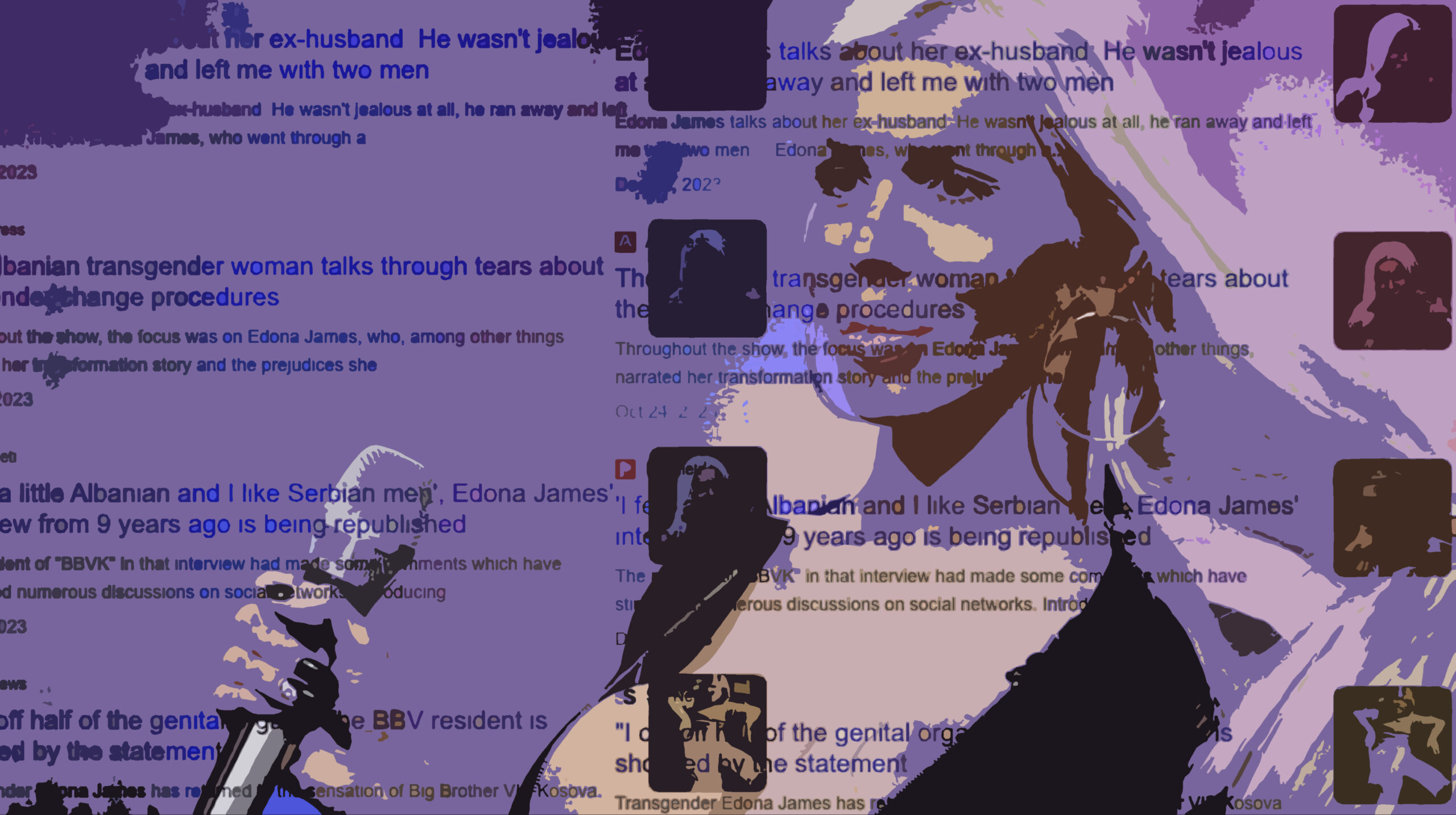
Sensationalist media coverage dehumanizes Edona James
Clickbait articles are unethical and harmful for the LGBTQ+ community.
|04.06.2024
|
Alongside her growing popularity, she disrupted the comfort of those who preferred to remain unaware of an openly trans Albanian woman.
The hate speech against her was a reminder of the constant danger that trans women face in Kosovo.
This demeaning media coverage only inflames existing prejudices against trans women and leads to their further marginalization.
The support she received during her time on “Big Brother” has been instrumental in forging a more accepting society, but there is still a long way to go as far as media representation is concerned.

Adora Limani
Adora Limani is an 18-year-old creative and journalistic writer from North Macedonia. Her creative writing has appeared in international publications like Brown University’s College Hill Independent, Wild Greens Magazine, and The New Absurdist, while her journalistic work, appearing in local publications like Respublica, focuses on women’s issues in the Balkans.
This story was originally written in English.